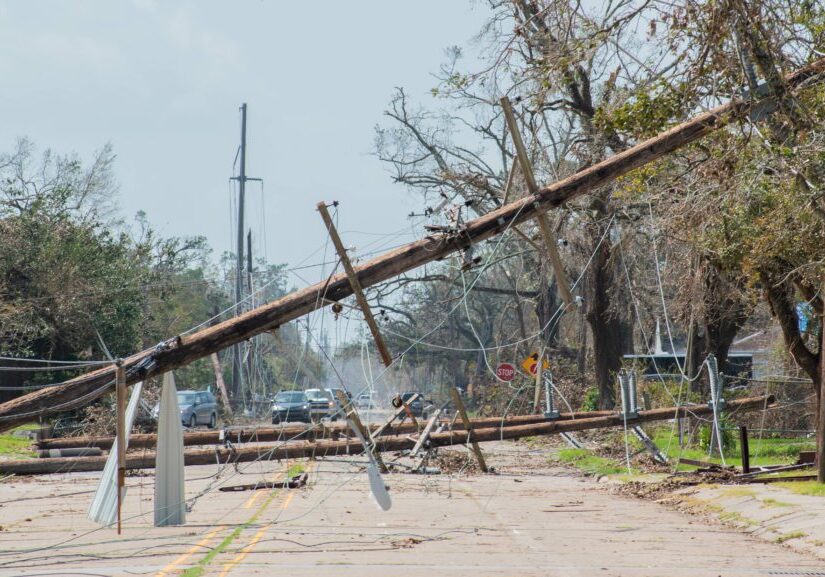By the middle of this century Louisiana will be a smaller, hotter state that’s more vulnerable to intensifying storms. The devastating effects of climate change mean some coastal parishes are projected to have hundreds of square miles swallowed by the sea. The carving up of wetlands by oil and gas companies, which burn fossil fuels that contribute to climate change, have also played a critical role. The Advocate’s Mike Smith explains how life could be upended in South Louisiana by 2050 – and the things leaders could do now to mitigate the damage.
Those decisions range from managing an energy transition away from fossil fuels to deciding whether to relocate especially vulnerable communities unlikely to survive — a controversial step for a list of reasons, particularly when it comes to Native American tribes. Further complicating the dilemma, a steep drop-off in available coastal restoration and protection money will occur less than a decade from today, leaving Louisiana with a huge funding gap if a new source of money isn’t found. Insurance costs are also skyrocketing — sparking concerns that some locations may eventually become uninsurable. Longer term, the prospects become increasingly dimmer.
Push to extend federal child care grant program
The exorbitant cost of child care is expected to get worse in the coming weeks as federal pandemic-era aid expires. U.S. Sen. Patty Murray of Washington is pushing a bill to extend federal child care grants for five years, but with no Republican support it has virtually no chance of becoming law. The AP’s Collin Binkley explains the consequences of inaction:
“There was a child care crisis even before the pandemic — and failing to extend these critical investments from the American Rescue Plan will push child care even further out of reach for millions of families and jeopardize our strong economic recovery,” said Sen. Patty Murray, D-Wash., a sponsor of the bill. … A June report from The Century Foundation found that without additional money, about 70,000 child care programs would probably have to shut down after this month. That amounts to a third of all programs that received the federal pandemic grants.
Note: Nearly 77,000 Louisiana children are in danger of losing access to child care programs when federal pandemic aid expires on Sept. 30.
Discrimination compensation for Black farmers
The $1.9 trillion American Rescue Plan Act included $4 billion of debt forgiveness for Black farmers, a group that has lost land as they were shut out of loans by banks and the federal government. But the farmers never saw that relief because of lawsuits from white farmers. Now the issue has been resolved after Congress repealed the former program and replaced it with a new law to help “underserved” farmers and ranchers. The Nashville Tennessean’s Danielle Dreilinger reports:
Stanley Hughes, a 75-year-old farmer in Orange County, North Carolina, said his farm loan accounts were “supervised.” Anything he wanted to buy, he had to bring the documentation to the loan officer, who cut a check to the seller. White farmers simply got a check for the full amount of their loans and could spend as they wished. … Applicants must have experienced discrimination in USDA farm loan programs before 2021 on the basis of race, color, national origin, ethnicity, sex, sexual orientation, gender identity such as being transgender, religion, age, disability or civil rights activity, or the perception that they were or did any of these things.
The application deadline for the Discrimination Financial Assistance Program is Oct. 31.
The consequences of not adequately funding WIC
The Special Supplemental Nutrition Program for Women, Infants, and Children (WIC) provides a crucial resource to millions of women who are either pregnant, breastfeeding, or have children younger than six months old by paying for certain kinds of healthy foods. But Congress is balking at efforts to increase funding for the program, which was underfunded before the pandemic, despite an uptick in demand stemming from the expiration of pandemic benefits and rising prices. The Center on Budget and Policy Priorities’ Zoe Neuberger explains the consequences of not adequately funding WIC.
Without substantial funding above what is in the Senate bill, we estimate that 600,000 eligible new parents and young children would be turned away from WIC. Under a funding shortfall, states would put some eligible applicants on waiting lists and would be unable to continue serving some participants when they reach the end of their eligibility period and need to renew their benefits. States could also reduce enrollment by scaling back outreach, clinic hours, or enrollment simplification efforts. Some eligible families who otherwise would have sought benefits could be discouraged from applying at all when they learn about waitlists.
Number of the Day
800 – Number of square miles that Louisiana is projected to lose by 2050 because of rising sea levels from climate change. New Orleans is 170 square miles. (Source: The Advocate)
